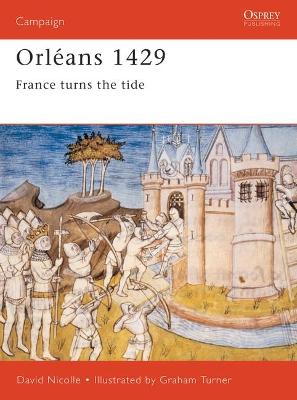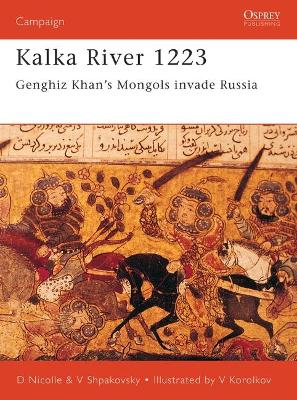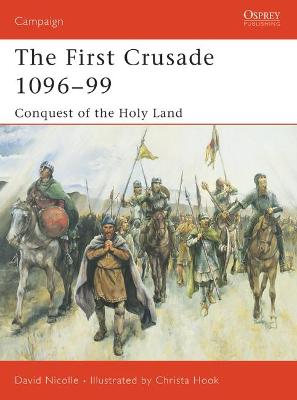Osprey Campaign S.
3 primary works
Book 94
By 1429, with French fortunes in the Hundred Years War at their lowest ebb, an English victory seemed inevitable. Northern France including Paris was firmly under English control and the city of Orleans was besieged by an English army. At the darkest hour, a deeply religious peasant girl from Champagne came to the Dauphin, convinced that she had a divine mission to help him defeat the English. Her name was Joan of Arc. In less than four months Joan's inspired leadership helped to break the siege of Orleans. This volume tells the story of a legendary episode in France's history.
Book 98
This book tells the fascinating story of the battle of the Kalka River, the culmination of Ghengis Khan's reconnaissance expedition into Russia of 1221. The consequences for the history of Europe were incalculable. The decisive Mongol victory over a combined Russian and Kipchaq army at the battle of the Kalka River opened up vast regions of Russia and Christian Eastern Europe to Mongol conquest. On orders from Ghengis himself the victorious Mongols returned eastwards, delaying the final cataclysm by a few years. However, the Russians were incapable of strengthening their defences enough to withstand the later attacks. As a result Russia fell under what historians call 'the Mongol yoke' for several centuries. In 1227 Ghengis died but the victory at the Kalka River was followed within 14 years by a Mongol invasion of Eastern Europe and even more disastrous defeats. Only the death of the Ogatai, son and successor of Ghengis, saved Europe from Mongol domination.
Book 132
To many people the Crusades were the First Crusade. This first 'armed pilgrimage' to the Holy Land was, of course, the only Crusade that really succeeded. It resulted in the establishment of four so-called Crusader States in the Middle East and its repercussions can still be felt today. But in addition to its historical significance, this book explores how the First Crusade saw several armies march right across Europe at a time when such a thing was virtually unheard of. It also struck the Islamic World at a moment when the latter was chronically divided and thus won a series of miraculous military victories, which would have been impossible a generation earlier and were never repeated afterwards.


